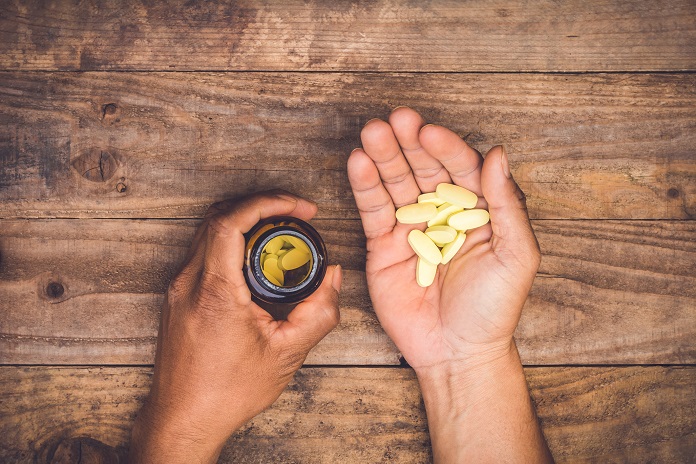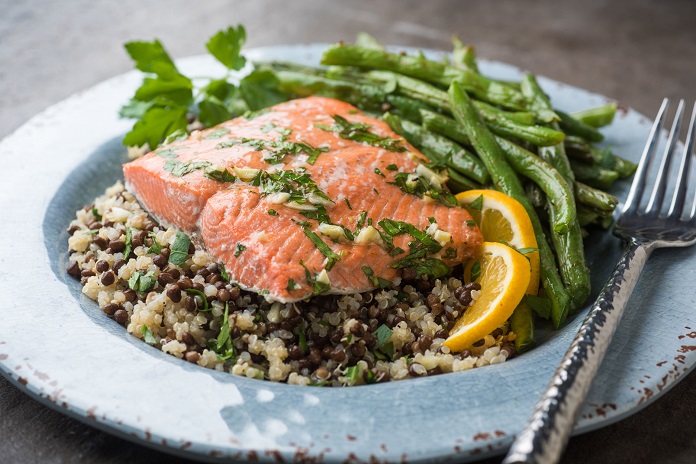Vitamin D, also known as the sunshine vitamin, plays a vital role in a range of physical functions and is critical for keeping our bones, teeth and muscles healthy.
There’s now growing interest in whether it could help protect against Covid-19.
Scientists from Queen Mary University of London launched a new trial to investigate whether vitamin D protects against the virus as there’s already evidence that it might reduce the risk of respiratory infections. Some recent studies suggest people with lower vitamin D levels may be more susceptible to coronavirus.
Researchers from Queen Mary, funded by @Barts_Charity, have launched a new clinical trial to investigate whether taking vitamin D could protect people from #COVID19 https://t.co/K1EHuWq2VI pic.twitter.com/kGRtCUJ2L0
— Queen Mary University of London (@QMUL) October 14, 2020
Why do we need vitamin D?
“Many people in the UK have low vitamin D levels, particularly in the winter and spring when respiratory infections are most common,” says lead researcher Professor Adrian Martineau. “Vitamin D deficiency is more common in older people, in people who are overweight, and in black and Asian people. All of the groups who are at increased risk of becoming very ill with Covid-19.”
It’s estimated that roughly 1 in 5 people have low vitamin D levels, according to the NHS. This is hardly surprising when we get most of it from sunlight on our skin – hence why vitamin D is often dubbed the ‘sunshine vitamin’. While during sunny spring and summer months, most of us can get enough vitamin D naturally. But in the UK, there simply isn’t enough sunlight during the autumn and winter months to meet our needs.
From October to March, we rely on dietary sources. These include oily fish, red meat, liver, eggs and food such as cereals and spreads fortified with the vitamin. For this reason, Government guidelines already recommend everyone should consider taking daily 10-micrograms vitamin D supplements.

Should I consider taking vitamin D supplements?
“Making sure you’re getting enough vitamin D is likely to benefit your bone and muscle health in the long term,” explains nutrition scientist Bridget Benelam from the British Nutrition Foundation (BNF).
“Vitamin D is also involved in supporting our immune system, something we’re all aware of in light of the coronavirus pandemic. No vitamin can prevent or cure Covid-19, but if you’re not getting enough vitamin D, increasing your intake, alongside a healthy diet, can help keep your immune system working as well as possible.”
And dietitian Dr Carrie Ruxton, from the Health & Food Supplements Information Service, notes: “Vitamin D is vital. It contributes to the uptake of calcium by bones and teeth and helps regulate blood levels of calcium and phosphorus.”
So, whatever the outcome of the Covid-19 trial, vitamin D is already known to be crucial for optimal health.
Does the sunshine vitamin work?
Dr Sarah Brewer, medical nutritionist, GP and Healthspan medical director, says:
“You can make vitamin D in your skin when the UV index exceeds 3. As a result, vitamin D levels tend to plummet during autumn and winter in people living in northern latitudes such as the UK. Food sources then become important, but if you don’t eat much oily fish, liver products, eggs, butter or fortified foods, you are likely to remain deficient during winter.
“Public Health England found that 23% of adults aged 19-64 years, 21% of adults aged 65-plus, and 22% of children aged 11-18 have low blood levels of vitamin D. They, therefore, advise everyone should consider taking a supplement supplying 10 micrograms of vitamin D per day during autumn and winter months.
“However, this is the minimum needed to prevent vitamin D deficiency conditions, such as muscle and bone aches and pains, osteomalacia or rickets. For optimum health, there is increasing evidence that higher doses of 25mcg to 50mcg vitamin D are needed. Especially for older people as the ability to synthesise vitamin D declines in later life.

Can I get enough vitamin D from being outside?
“Even when the sun is shining, many people fail to synthesise sufficient vitamin D. This is because they cover up, use high SPF sunscreens, or stay in the sun for more than 20 minutes which causes inflammation (sunburn) that breaks down the vitamin D they’ve already produced. Age also plays a role – we make four times less vitamin previtamin D3 in the skin over the age of 60 than in our 20s.
“The synthesis of active vitamin D is quite complicated. To become active, the pre-vitamin D made in the skin must undergo two further conversions in the liver, then in the kidneys/other tissues. Another study found among 93 fit, healthy surfers in Hawaii, for example, more than half had low vitamin D status despite achieving 29 hours of sunshine exposure per week. This may partly be due to genetic inefficiencies of vitamin D3 metabolism and partly because longer sun exposures cause the rapid breakdown of previtamin D3 in the skin.
“Take a supplement supplying at least 10mcg vitamin D3 (and preferably 25mcg) per day. Those aged over 50 may need 50mcg per day to offset lower production in the skin and reduced dietary absorption. The European Food Safety Authority has suggested a tolerable upper safe level for long-term use from supplements of 100mcg vitamin D3 per day. Select supplements providing vitamin D3, which is more effective than the plant form known as vitamin D2 for maintaining vitamin D status.”
Benefits of the sunshine vitamin
Here are four reasons why it’s essential to ensure you get enough vitamin D…
1. Stronger bones
Vitamin D helps regulate the absorption of calcium and phosphorus, so a lack of the vitamin can lead to poor calcification of the skeleton.
The British Nutrition Foundation explains that prolonged vitamin D deficiency in children leads to rickets. This can cause bone pain, poor growth and bone deformities, including bowed legs, curvature of the spine, and thickening of the ankles, wrists and knees, and fractures.

While rickets was for a long time virtually wiped out in the UK, due to the fortification of foods and improved diets, in recent years, cases are again being reported. In addition, while osteoporosis in adults isn’t directly caused by vitamin D deficiency, the vitamin can help manage the disease, says the BNF.
2. Stronger muscles
In adults, vitamin D deficiency can lead to osteomalacia. It causes aching bones and muscles and muscle weakness, making standing and walking difficult.
3. Better teeth
Because of its role in regulating the absorption of calcium, vitamin D also helps keep teeth strong, says the BNF.
Vitamin D and COVID-19 in news again! NICE & SACN new rapid reviews. Main conclusion not enough evidence to support taking vit D supplements to specifically prevent/treat COVID-19 but vit D still important for bone & muscle health. Summary on BNF website https://t.co/KNGDM0OfNp pic.twitter.com/Xebjnz3aKm
— British Nutrition Foundation (@BNFEvents) July 2, 2020
4. Improved immunity
A 2019 University of Edinburgh study suggests low vitamin D levels may lead to increased immune responses potentially linked to a raised risk of autoimmune conditions, such as multiple sclerosis.
“There are vitamin D receptors on many immune cells,” says Ruxton, “suggesting that it has a widespread role in optimal immunity – an important point as we face a continuation of the Covid-19 crisis, just when the winter flu and cold season approaches.”
Best-selling vitamin D supplements
Check out these best-selling vitamin D supplements.
No products found.
You may be interested in…
This article may include affiliate links to products and services where we may receive a small fee to support the running of this site if you make a purchase or is a sponsored article from one of our select editorial partners providing valuable advice and information to our readers.








































































